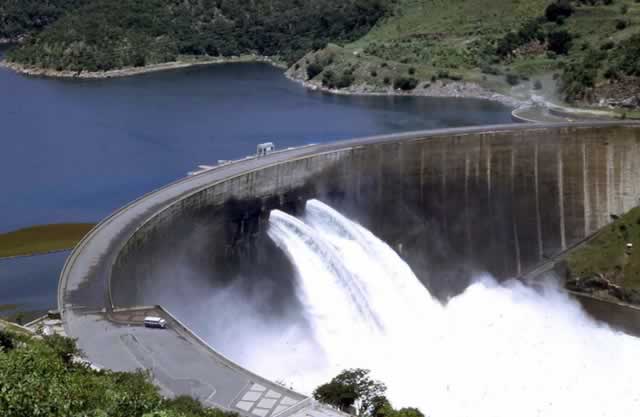Mbare suburb’s strange charm, rich history

Ignatius Mabasa Shelling The Nuts
MBARE is not just one of the oldest residential areas in Zimbabwe, but it is a place that has a larger than life character, an enigma like Tsuro Magen’a in the folktales. It is home to many personalities — musicians like Louis Mhlanga; great boxers like the late Proud “Kilimanjaro” Chinembiri to upstarts like Zimbabwe Dancehall star Soul Jah Love. If Mbare were to wear a hat, it would wear it cocked at an angle to reflect an attitude.
Mbare has a strange charm and oozes history.
It is Mbare that is the home of Dynamos Football Club, where you find Rufaro Stadium, Mupedzanhamo market, the Mbare Musika long-distance bus rank, and the farmers’ vegetable market.
In Mbare, you will also find Harare High School called Danho rashaya makumbo because when it was built to offer Advanced Level to Africans during the colonial era, very few blacks were interested in pursuing education beyond Form Four.
Mbare is also the home of very old historical buildings like Mai Musodzi Hall, Carter House and Stoddart Hall, the place where dead national heroes pass through before they are taken to their resting place at the National Heroes Acre. One place that fascinates me more than ZBC Mbare Studios, Matererini or Matapi flats is the indomitable Siyaso market.
Siyaso is the home of small to medium enterprises where like MacGyver they will fix anything out of something.
Here, one man has what another man needs, and what another man wants another man has.
It is at Siyaso where the young men will greet you as if you are an uncle from their rural home. It is not genuine love or respect that they are offering you, but they want to win your trust and confidence. They do not want you to leave Siyaso without having parted with a dollar, or more.
The young men at Siyaso will move mountains to get to your heart and wallet. They are poets and philosophers. They are marketers and demagogues. Some of them will appeal to your emotions in such a way that will make professional advertisers look like amateurs.
A good number of the young people subscribe to the Rastafarian world view of peace and love, but it is a kind of peace where they are prepared to shoot, kill and eat the white dove that symbolises peace in order to get your dollar. One of them having tried very hard to persuade me to engage him as my escort boldly said, “Nhasi zvaramba hazvo mudhara, asi rimwe zuva muchandipa zvenyu basa. Chikuru rudo mudhara, mari inopera!”
This was two weeks ago when I visited the famous Siyaso, looking for a special type of long bolts for roof trusses. After searching high and low in formal shops, I was advised that I could only get them custom made in Mbare, so I headed for Siyaso. As soon as I parked my car at Siyaso, I was mobbed by a group of young men who came running from all directions.
These are the young men whose job is to meet, receive and greet visitors to Siyaso. They were all trying to get my attention. One tall and slim young man who was standing next to the driver’s door of my car was saying, “Aaa mudhara, mudhara wangu chaiye chaiye, mudhara auya vakomana. Manga marova mudhara. Nhasi muri kuda chii mudhara wangu? Zvese ndinazvo!” Immediately he turned to address the rest of the group saying, “You can all go away now because this man is my old customer. Mudhara wangu chaiye!”
I am claustrophobic, I do not like being mobbed. So, I decided to just sit in the car and watch the group arguing and pushing each other. The young man who had been standing by my driver’s door pleaded with me to tell him what it is that I wanted to buy. I told him that I had not come to buy, but to make an enquiry. I told him and his group to leave. They did not move. In the end, I opened my car door, got out, closed the door and locked my car and started walking into the complex.
About five young men followed me inside the complex.
They were begging me to tell them what I was looking for, so that they could tell me where to get “it” cheaper.
Yet, the thing is, these young men do not have any place to call their own.
They do not have their own hardware material to sell.
They are self-appointed salesmen who wait for you not to get to the manufacturer or stall owner and get a fair price.
Their business is getting items from the stall owners or manufacturers and putting a mark up.
As soon as they know what you want to buy, they quickly disappear into the complex, promising to bring back the item you want as soon as possible because they know every nook and cranny of the massive Siyaso.
Eventually, like lions chasing a baboon that has taken refuge in a very tall tree, the group gave up on me.
So, I sauntered into the complex unbothered. As I passed each stall, I was warmly greeted and asked the same question, “Tokupai chii nhasi?”
This is a special way to invite a potential buyer, giving the impression that you have done business together before.
Yet, it was one boisterous lady in a red apron that succeeded in making me stop and talk to her. Where others were simply asking me what it is that I wanted to buy, this particular lady took me by surprise when she said, “Aaa babamukuru madzoka!”
I had never been to Siyaso in months. I had to stop and explain to the woman that she must be mistaken because I was just coming into Siyaso for the first time in a long time. Yet, upon reflecting on her words and actions, I realised that it was a clever way of getting me to stop and engage with her in conversation.
As a mature African man, if one addresses me using a relationship title like “babamukuru” I feel respected and also get the feeling that I am talking to a real relative. Being addressed in such a way separates me from any other potential buyer. Suddenly, I had found my real mainini among all these other strangers. Also, the fact that she said, “You are back!”
confused me because it gave the impression that there was unfinished business we had discussed before which I had come back to conclude. Most importantly, this kind of talk was a way of territory marking, indirectly telling the other stall owners that I am claiming and protecting my babamukuru who has come back to his relative’s stall.
Such behaviour is psychological and clever. The people in Siyaso are very much aware of the fact that people who come to do business in that place are uneasy because of being mobbed and persuaded to buy something of not so good quality at a high price than what the manufacturer would ask for. This is what makes the seasoned vendors and stall owners use words and relations to calm you down.
Once you get the feeling that you are talking to a relative who will give you a good deal, you relax.
Indeed, that woman eventually told me where to find the man who manufactures the special roof bolts, but not without asking for five rand to buy a drink.
I remember when my wife went to Mbare Musika to meet her sister who was coming from Chiredzi.
One young man greeted her saying, “Mhoroi ambuya vangu. Ko kumba kuri sei?”
My wife looked at the young man, but she could not recognise his face, so she ignored him. Determined to get a conversation going, the young man said, “Saka ndizvo zvamunoita kana mave kuHarare kudadira vazukuru nhai?” He was appealing to the values of hunhu or ubuntu. Our culture strongly despises those who are proud and haughty, especially to relatives. When the young man said those words, my wife felt very bad and cracked her head to figure out who this “nephew” was.
Yet, what she was not aware of is that when you get to Mbare, if someone wants something from you, you suddenly are a close relative.







Comments